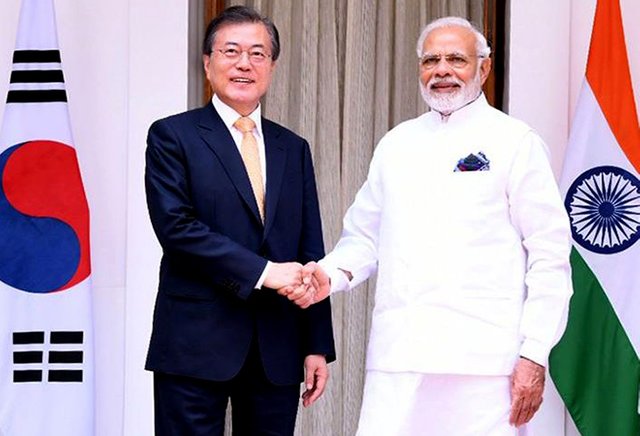India–South Korea relations refers to the bilateral relations between India and South Korea. The formal establishment of diplomatic ties between the two countries occurred in 1973. Since then, several trade agreements have been reached: Agreement on Trade Promotion and Economic and Technological Co-operation in 1974; Agreement on Co-operation in Science & Technology in 1976; Convention on Double Taxation Avoidance in 1985; and Bilateral Investment Promotion/ Protection Agreement in 1996.
Trade between the two nations has increased greatly, from $530 million during the fiscal year of 1992-1993, to US$10 billion during 2006-2007. It further increased to US$17.6 billion in the year 2013.
India-RoK relations have made great strides in recent years and have become truly multidimensional, spurred by a significant convergence of interests, mutual goodwill, and high-level exchanges. South Korea is currently the fifth-largest source of investment in India. Korean companies such as LG and Samsung have established manufacturing and service facilities in India, and several Korean construction companies won grants for a portion of the many infrastructural building plans in India, such as the National Highways Development Project. Tata Motors' purchase of Daewoo Commercial Vehicles at the cost of US$102 million highlights India's investments in Korea, which consist mostly of subcontracting.
The Indian Community in Korea is estimated to number 8,000. Their composition includes business people, IT professionals, scientists, research fellows, students, and workers. There are about 150 businesspeople dealing mainly in textiles. Over 1,000 IT professionals and software engineers have recently come to Korea to work, including in large conglomerates such as Samsung and LG. There are about 500 scientists and post-doctoral research scholars in Korea.
![Modi-south.jpg]
